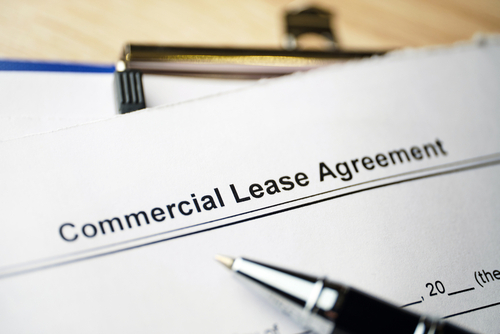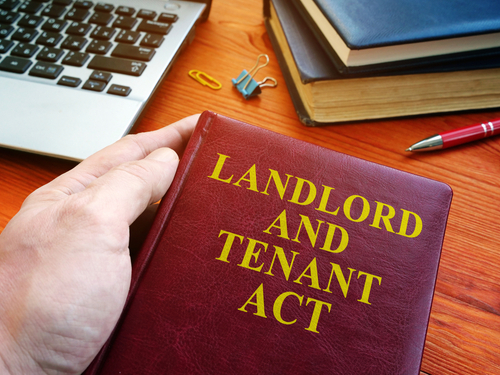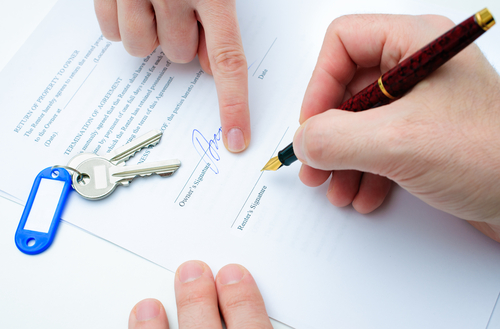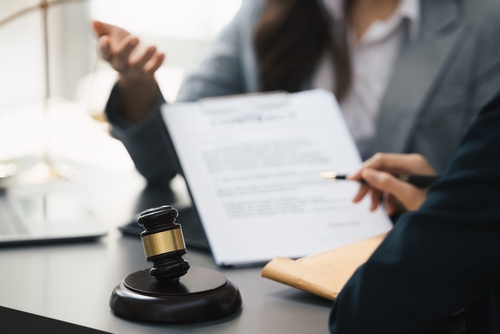
Debt Repayment Schemes: Legal Options for Debtors in Singapore
August 24, 2023
Litigation Process in Singapore: From Filing to Resolution
October 6, 2023Leasing and Tenancy Agreements: Rights and Obligations in Singapore

Leasing and Tenancy Agreements Rights and Obligations in Singapore
Leasing and Tenancy Agreements: Rights and Obligations in Singapore. Rental arrangements form a crucial part of urban living in Singapore, where the relationship between landlords and tenants is governed by leasing and tenancy agreements.
These legal contracts lay the groundwork for a harmonious and transparent rental experience.
Read on – Leasing and Tenancy Agreements: Rights and Obligations in Singapore:
The Significance of Clear and Comprehensive Agreements
The Purpose and Scope of Leasing and Tenancy Agreements
Leasing and tenancy agreements outline the terms and conditions that landlords and tenants must adhere to during the rental period. These agreements serve as legal safeguards, protecting the interests of both parties and preventing potential disputes.
Legal Protection for Both Landlords and Tenants
Well-drafted agreements provide legal protection by clearly defining the rights and responsibilities of landlords and tenants. This includes matters such as rent, security deposits, maintenance, and termination conditions.
Avoiding Misunderstandings Through Well-Drafted Agreements
Clear and comprehensive agreements help prevent misunderstandings and conflicts between landlords and tenants. These agreements reduce the likelihood of disputes arising during the tenancy by explicitly stating expectations and obligations.
Key Elements of Leasing and Tenancy Agreements
A detailed description of the property, including its address, unit number, and features, should be included in the agreement. This ensures that both parties are aware of the property being rented.
Myth – Oral Agreements Are Sufficient

Understanding the Risks of Oral Agreements
While recognized under the law, oral agreements pose risks due to potential misunderstandings and lack of evidence. In the absence of a written agreement, disputes can arise over the terms of the tenancy.
Reality: Written Agreements as Legal Safeguards
Written agreements provide a tangible record of the terms agreed upon by both parties. They offer legal safeguards and serve as concrete evidence in case of disputes.
The Enforceability and Legitimacy of Written Contracts
Written contracts are legally enforceable documents that hold landlords and tenants accountable for fulfilling their obligations as outlined in the agreement.
Rental Price and Payment Terms
Setting the Rent and Frequency of Payments
Landlords and tenants should agree on the rent amount and the frequency of rent payments. The agreement should specify whether the rent is payable monthly or at other intervals.
Myth – Rent Can Be Increased Without Notice
Rent increases require proper notice and adherence to legal guidelines. Landlords cannot unilaterally raise the rent without following the stipulated procedures.
Legal Restrictions and Guidelines for Rent Increases
Rent increases are subject to legal restrictions, and landlords must adhere to guidelines set by the Urban Redevelopment Authority (URA) to ensure fairness and transparency.
Security Deposits and Maintenance Fees

The Purpose and Amount of Security Deposits
Security deposits serve as financial protection for landlords in case of property damage or unpaid rent.
Using the Security Deposit for Damages or Unpaid Rent
Landlords can use the security deposit to cover costs related to property damages beyond normal wear and tear or unpaid rent as specified in the agreement.
Maintenance Fees and Responsibilities: Landlord vs. Tenant
The agreement should outline the responsibilities of both landlords and tenants regarding property maintenance, including who is responsible for repairs and upkeep.
Myth – Tenants Are Responsible for All Repairs
Clarifying Repairs and Maintenance Obligations
The agreement should clearly define the division of responsibilities for repairs and maintenance between landlords and tenants.
Reality: Distinguishing Between Wear and Tear vs. Damages
It’s essential to differentiate between normal wear and tear, which is the landlord’s responsibility, and damages caused by the tenant, which may require repair or replacement.
The Landlord’s Role in Ensuring Habitability
Landlords have an obligation to provide habitable living conditions. They should promptly address the tenant’s health, safety, or well-being issues.
Rights and Responsibilities of Landlords

Providing a Safe and Habitable Property
Landlords are responsible for maintaining the property in a safe and habitable condition. This includes ensuring compliance with building codes and resolving any safety hazards.
Access Rights and Privacy Considerations
Landlords have limited access rights to the rented property. They must provide reasonable notice before entering the premises, respecting the tenant’s right to privacy.
Myth – Landlords Can Enter the Property Whenever
Landlords cannot enter the property at their discretion. Entry must be for legitimate reasons, such as repairs or inspections, and with proper notice.
Dealing with Rent Arrears and Termination
Landlords should follow legal procedures to recover unpaid rent in case of rent arrears. They can terminate the tenancy if the tenant fails to fulfill their obligations.
Rights and Responsibilities of Tenants
Proper Use and Care of the Rented Property
Tenants have a responsibility to use the property responsibly and prevent damages. They should adhere to rules regarding property usage and avoid activities that may cause harm.
Ensuring Payment of Rent and Other Charges
Tenants must pay rent and other charges promptly as stipulated in the agreement. Failure to do so can result in legal consequences, including eviction.
Subletting, Renewal, and Termination of Tenancy
Tenants should seek permission from landlords before subletting the property. They should also adhere to procedures for lease renewal or termination.
Dealing with Disputes and Conflict Resolution

Addressing Disputes Amicably
Both landlords and tenants should prioritize open communication and amicable resolution of disputes. Addressing issues early can prevent conflicts from escalating.
Seeking Mediation and Legal Assistance
If disputes cannot be resolved amicably, parties can consider seeking mediation through the Singapore Mediation Centre (SMC) to arrive at a mutually acceptable solution.
The Role of the Singapore Mediation Centre (SMC)
The SMC provides a platform for parties to mediate, offering a neutral and structured process for resolving conflicts without resorting to litigation.
Reality – Balancing Legal Protection and Fairness
Fostering Healthy Landlord-Tenant Relationships
Transparency, open communication, and mutual respect are essential for fostering positive relationships between landlords and tenants.
The Essence of Transparent and Equitable Agreements
Leasing and tenancy agreements should balance legal protection for both parties while ensuring fairness and adherence to applicable laws and regulations.
Elevating Rental Experiences Through Legal Awareness
By understanding their rights and obligations, both landlords and tenants can contribute to a rental landscape that prioritizes harmonious coexistence and legal compliance.
FAQs:

Why are written agreements important for rental arrangements?
Written agreements provide clarity, evidence, and legal protection for both landlords and tenants.
What are the key elements that leasing agreements should include?
Leasing agreements should include parties’ details, property descriptions, rental terms, payment details, and obligations of both parties.
Can oral agreements be legally enforced?
While oral agreements are legally recognized, written agreements are more enforceable and provide better protection.
How are rental prices and payment terms determined?
Lands and tenants typically negotiate rental prices and payment terms based on market conditions.
What is the purpose of a security deposit, and how much is appropriate?
A security deposit provides financial security for landlords in case of property damage or unpaid rent. The amount varies but is usually one to two months’ rent.
What are the maintenance responsibilities of landlords and tenants?
Landlords are responsible for major repairs, while tenants are responsible for minor maintenance and upkeep.
Can landlords enter the rented property without notice?
Landlords must provide proper notice before entering the property for legitimate reasons, respecting the tenant’s privacy.
What are the rights and responsibilities of tenants?
Tenants have the right to a habitable property and must pay rent on time, use the property responsibly, and adhere to the terms of the agreement.
How can disputes between landlords and tenants be resolved?
Disputes can be resolved through open communication, mediation, or legal assistance.
How can I ensure a fair and transparent rental experience?
Understanding leasing laws, seeking legal advice when needed, and maintaining open communication with the landlord or tenant.
Leasing and Tenancy Agreements: Rights and Obligations in Singapore – Conclusion

Navigating the rental landscape in Singapore requires a deep understanding of leasing and tenancy agreements.
Clear agreements, mutual respect, and legal awareness are essential for fostering healthy relationships and ensuring a harmonious rental experience for all parties involved.
By adhering to these principles, landlords and tenants can coexist in an environment that prioritizes fairness, transparency, and compliance with the law.
Are you seeking a professional and reliable lawyer in Singapore? Contact us today!



